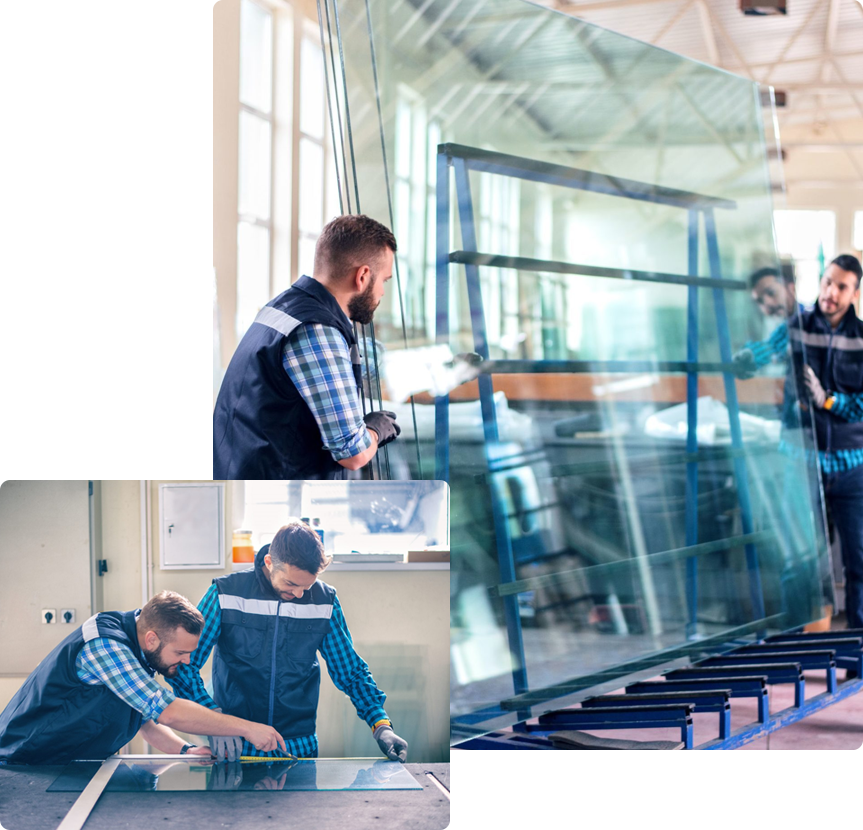
Glaziers in Melbourne bring architectural visions to life. Discover expert glass solutions for your projects. Reach out to our team for enquiries.
Glass is a key component in creating the city’s recognisable skyline and modern style, seen in everything from elegant buildings to renowned landmarks. Behind every shimmering facade lies the expertise of glaziers and skilled craftsmen who bring architectural visions to life with precision and artistry. In this blog, we explore the role of glaziers in Melbourne and the diverse range of architectural glass options that elevate the city’s environment.
The Role of Glaziers in Melbourne
Glaziers in Melbourne play a crucial role in building and renovating structures. They install, repair, and replace glass components, collaborating with architects and builders to ensure compliance and achieve aesthetic goals. With expertise in glass fabrication and installation, they enhance visual appeal and functionality in architectural projects.
Types of Architectural Glass
• Float Glass – Float glass is a standard type of clear glass produced by floating molten glass on a bed of molten metal, typically tin. Its smooth surface, optical clarity, and uniform thickness make it ideal for various applications like windows, doors, and interior partitions.
• Tempered Glass – Tempered glass is a type of safety glass that undergoes a thermal or chemical tempering process to increase its strength and durability. Tempered glass breaks into small, blunt pieces, lowering injury risk. It’s used where safety and impact resistance are crucial, like shower enclosures and storefronts.
• Laminated Glass – Laminated glass has layers bonded with PVB or EVA resin, offering strength, sound insulation, and resistance. It’s used for safety, security, and noise control in windows, doors, and skylights.
• Low-Emissivity (Low-E) Glass – Low-emissivity glass features a thin, transparent coating that reduces heat transfer and blocks ultraviolet (UV) and infrared (IR) radiation. By minimising heat gain in summer and heat loss in winter, low-E glass improves energy efficiency and indoor comfort while protecting furnishings and occupants from UV damage.
• Insulated Glass Units (IGUs) – Insulated glass units (IGUs) have multiple glass panes separated by gas-filled airspace. They provide better thermal insulation, sound reduction, and condensation resistance than single-pane glass, ideal for energy-efficient windows and facades.
• Decorative Glass – Decorative glass includes various specialty products like frosted, patterned, tinted, stained, and textured glass. They enhance visual aesthetics, add privacy, and bring character to architectural spaces.
• Smart Glass – Smart glass, also called switchable or dynamic glass, lets you control light transmission, opacity, and thermal properties. It adjusts transparency or tinting for privacy, glare control, energy savings, and enhanced comfort.
• Structural Glass – Structural glass systems use glass as a load-bearing element in building structures, such as walls, floors, canopies, and staircases. Engineered for strength, safety, and transparency, structural glass systems create seamless, minimalist designs that maximise natural light and panoramic views.
Architectural glass is a distinctive feature that contributes to the urban fabric of the city, enhancing the sleek lines of contemporary skyscrapers and the delicate details of heritage buildings. As your trusted and reliable glaziers in Melbourne, Quick Fit Glass specialises in delivering exceptional glass and glazing solutions for both residential and commercial projects. Discover how we can help you realise your architectural vision with our comprehensive range of glass installation and replacement services, including pet doors, mirrors, shower screens, splashbacks, aluminium shopfronts, and more.

